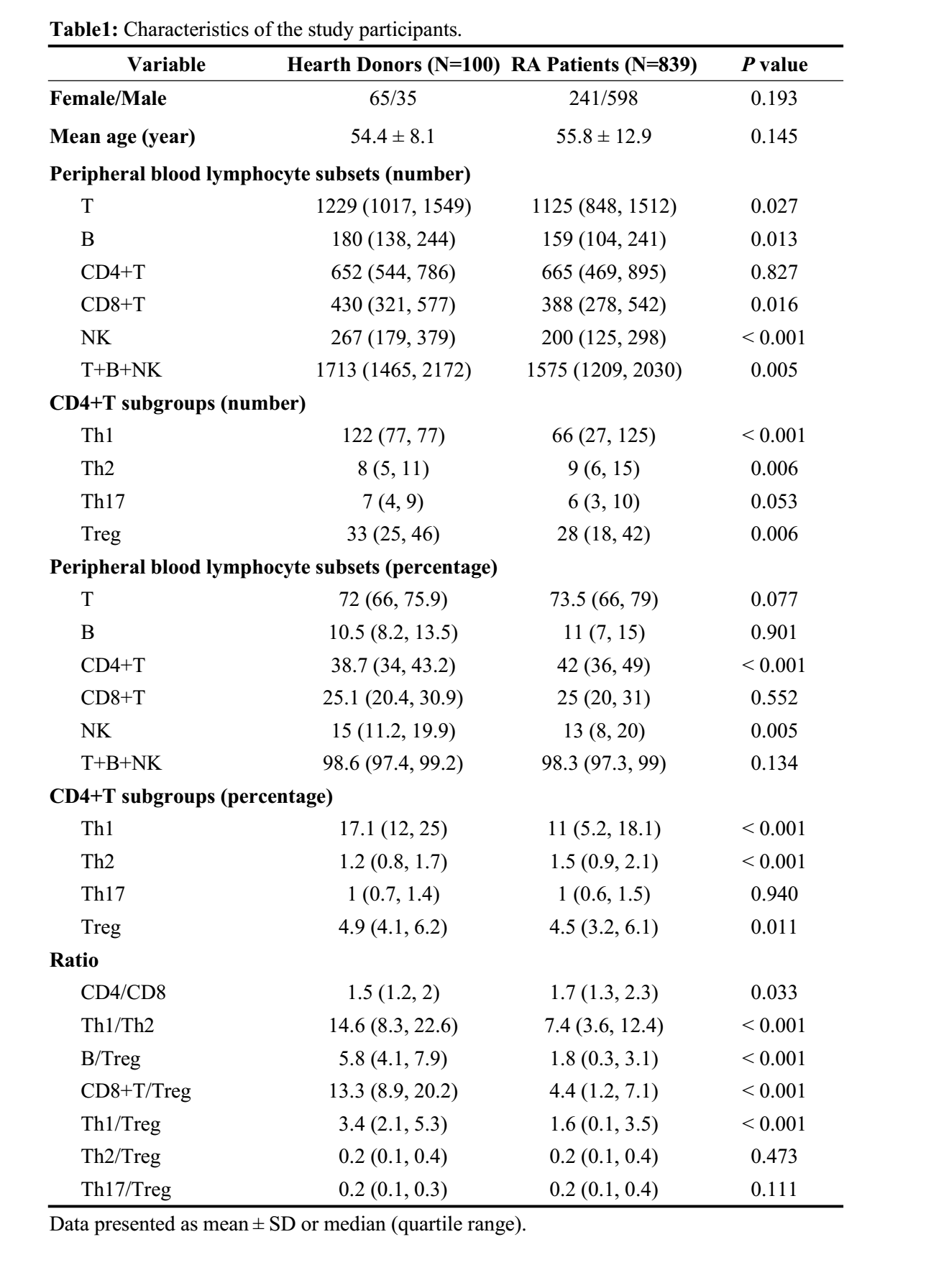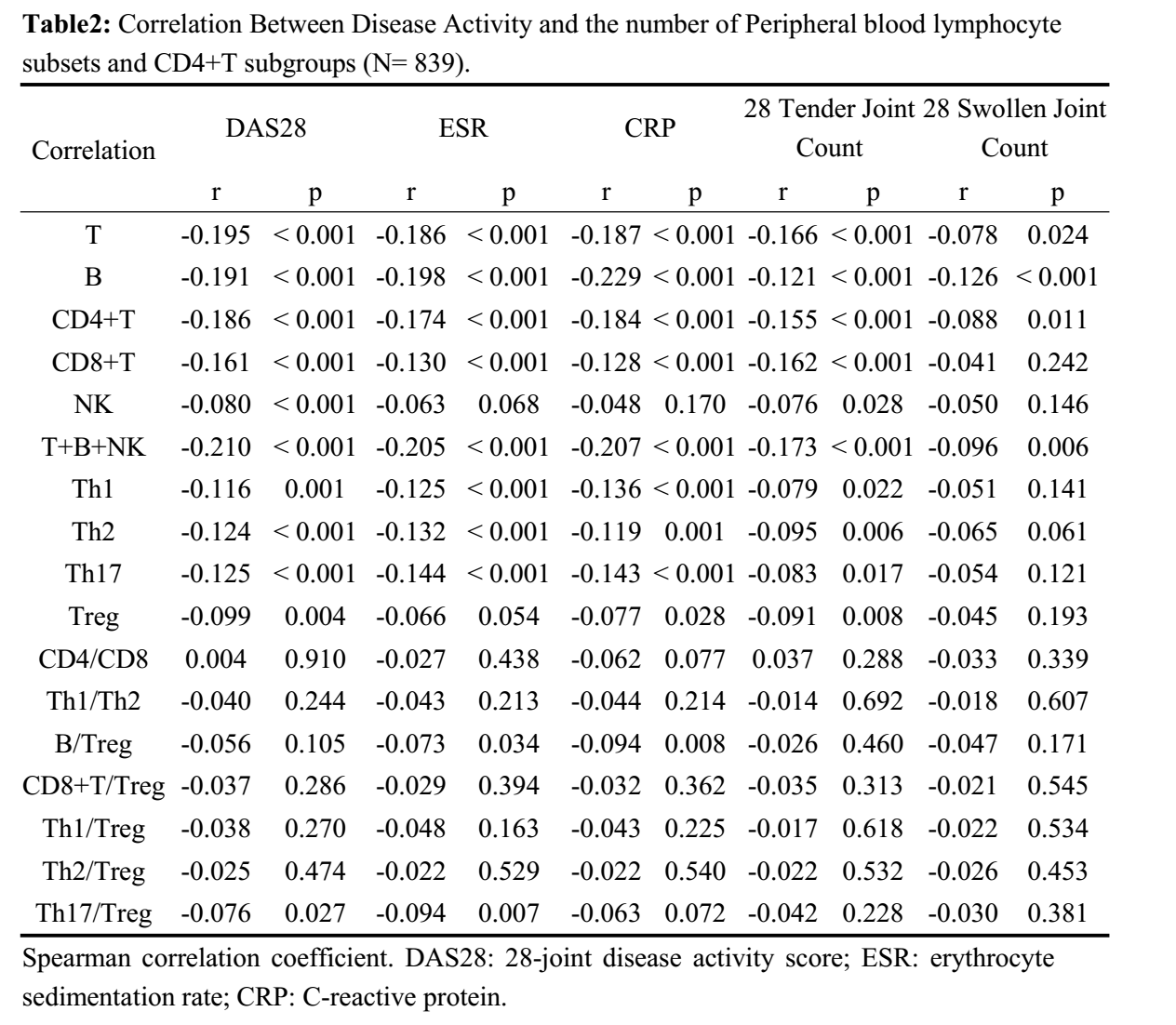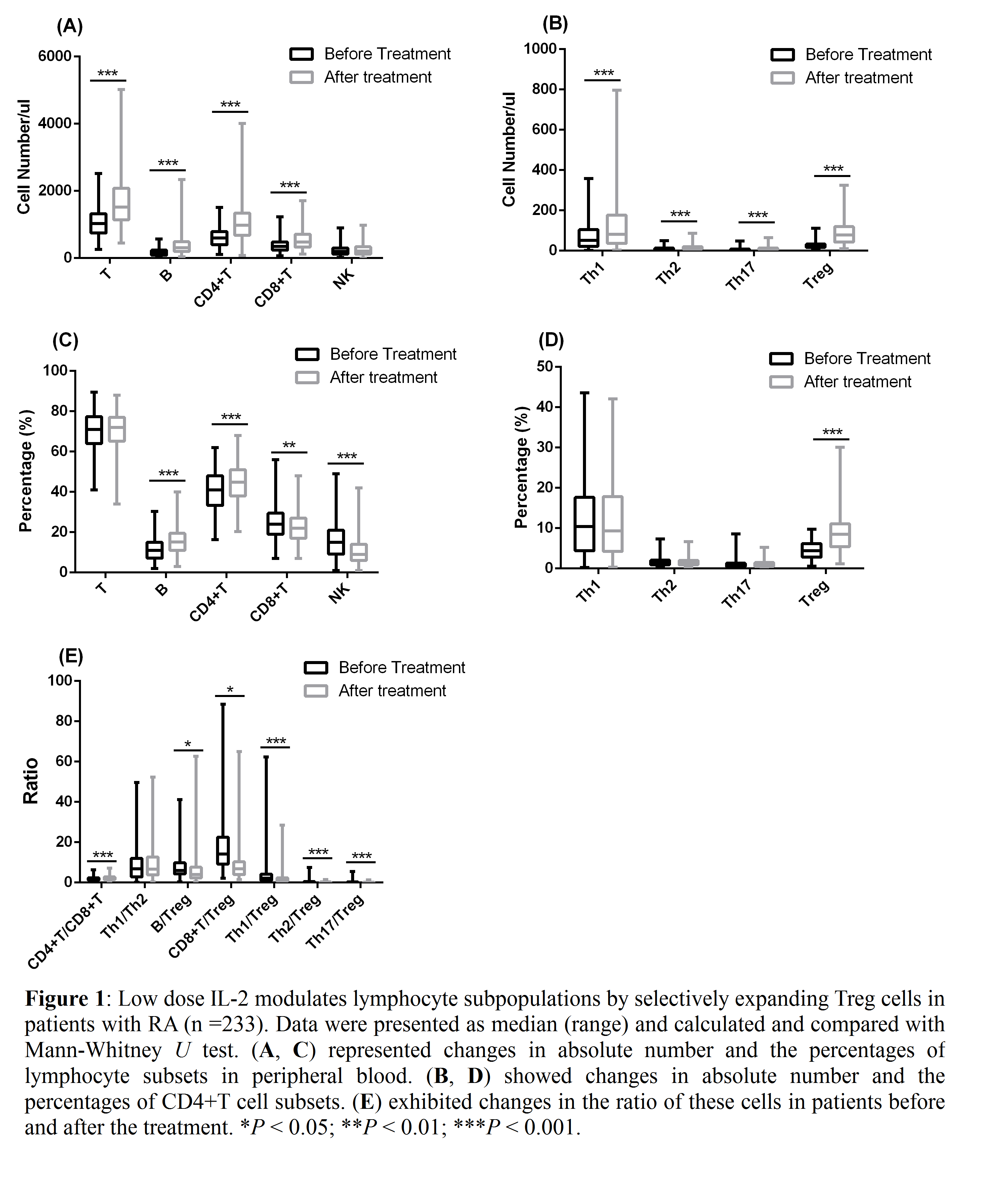Session Information
Date: Monday, October 22, 2018
Title: 4M106 ACR Abstract: RA–Treatments III: New Compounds & Biosimilars (1935–1940)
Session Type: ACR Concurrent Abstract Session
Session Time: 4:30PM-6:00PM
Background/Purpose: Patients with rheumatoid arthritis (RA) have lymphocyte dysfunction characterized by deficiency or dysfunction of regulatory T cells (Tregs), which plays crucial roles in immune tolerance. Low dose IL-2 has been reported to promote selectively the expansion of Tregs. This study aimed to investigate the alterations and their clinical significance of the absolute numbers of lymphocyte subpopulations in RA patients and to restore the immunologic balances by low-dose IL-2.
Methods: Absolute number of CD4+CD25+FOXP3+Treg, CD4+IL17+T (Th17) and other subsets in peripheral blood (PB) from 839 patients with RA and 100 healthy donors were characterized by flow cytometry combined with an internal microsphere counting standard. Total 233 of patients were treated with daily subcutaneous injections of 0.5 million IU of human IL-2 for five consecutive days, and then its effects on lymphocyte subpopulations in PB were analyzed.
Results: There was a significant disturbance in lymphocyte subpopulations mainly manifested as the decreased level of Tregs compared with the health controls (P < 0.05) . Further, Treg values were found to be correlated negatively with DAS28, CRP and tender joint count (P < 0.05), suggesting an important role of Tregs in sustained high disease activity. Low dose IL-2 effectively increased the number of Tregs (P < 0.001) and re-balance the ratio of Teffs and Tregs (P < 0.05), leading to increased clinic symptom partly remission in a rapid way without observed side effects.
Conclusion: Absolute decrease of PB Tregs in patients with RA was associated with continuing disease activation and low dose IL-2, a potential therapeutic candidate, restored decreased Tregs and promoted rapidly remission of patients with RA without over-treatment and evaluated side effects.
To cite this abstract in AMA style:
Yan M, Zhang SX, Jia R, Hao YF, Sun HH, Wang YY, Liu GY, Wang CH, Gao C, Li XF. Low-Dose IL-2 Restored Reduced Regulatory T Cells in Patients with Rheumatoid Arthritis [abstract]. Arthritis Rheumatol. 2018; 70 (suppl 9). https://acrabstracts.org/abstract/low-dose-il-2-restored-reduced-regulatory-t-cells-in-patients-with-rheumatoid-arthritis/. Accessed .« Back to 2018 ACR/ARHP Annual Meeting
ACR Meeting Abstracts - https://acrabstracts.org/abstract/low-dose-il-2-restored-reduced-regulatory-t-cells-in-patients-with-rheumatoid-arthritis/



